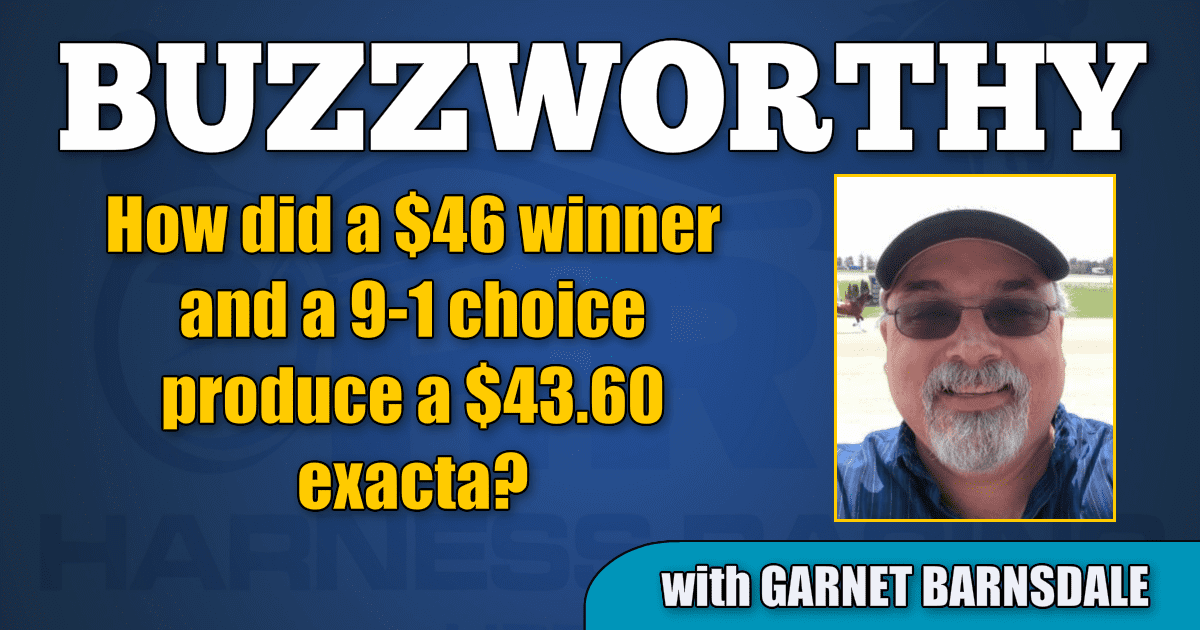Piecing together what happened when a $46 winner and a 9-1 choice produced a $43.60 exacta
by Garnet Barnsdale
It didn’t take long for social media to light up following the 7th race at The Raceway at Western Fair Wednesday night (Jan. 16) when a $46 winner produced only a $43.60 exacta payoff when combined with the 9-1 fifth choice in the seven-horse race.
There were the predictable posts that suggested it was “barn money” or “inside information” that suppressed the payoff, and to their credit, The Raceway’s management got in front of the issue by contacting both the Alcohol and Gaming Commission of Ontario (AGCO) and the Canadian Pari-Mutuel Agency (CPMA) to investigate the wagering patterns for the race and the origin of the winning tickets.
Evidence showed that the bulk of the winning tickets were sold at a tote hub in Kentucky that has been the location of similar incidences in the past. Prior investigations showed no evidence of collusion or anyone driving in a questionable manner in that race, and The Raceway’s management indicated that they are continuing to look into this instance and supporting the regulators in investigating this situation to the fullest extent required.
So, what happened then? Looking at the exacta pool probables, adding in some information provided in tweets regarding the time the bets were placed and looking at the race replay, this is what I pieced together:
Based on a tweet by Twitter regular and Advance Deposit Wagering company Twinspires employee Ed Derosa, the big bet on the winning 4-2 combination — likely in the $150 to $200 range when the pool size of $4,007 and the 26 per cent takeout rate is considered — was made in the final eight seconds of the wagering period. There were similar bets made on all combinations involving the 2, 4 and 5 horses, who left first, second and third off the gate.
It makes sense to conclude then, that the Kentuckians making these bets are watching to see which horses are leaving the gate and hammering the combinations involving those three horses at the absolute last second before wagering gets cut off.
I watched the replay a few times to see if that theory had any merit and it certainly does depending on when betting gets cut off and raises some questions. In this particular race it is very obvious just before the start that the horses leaving from posts 1 and 3 have no interest in leaving, but the 2, 4, 5, 6 and 7 horses are all relatively even. There would be no reason at that point to rush to hammer a 2-4-5 exacta box.
When the horses hit the wire for the first time, however, the 2, 4 and 5 are three-abreast and well clear of the rest of the field. So the $64,000 question here is what is the exact time that wagering is cut off at The Raceway? Because, if it’s when the first horse touches the wire, which would make sense because you would assume that is when the race starts getting timed, someone waiting until the last second can have an advantage on a ½-mile track where speed typically rules and an edge could certainly be gained in this particular race. The flip side of that is, they don’t always finish the way they line up at the start, and in cases where the top three get split for the exacta, the other winning bettors likely get an overlaid exacta payoff. In this case, had the 7 horse Adventure Ahead got up for third, the lucky holder of a $1 exacta ticket would have scooped the entire pool for three grand. I imagine in that case, no one would even notice or mention the heavy betting on the losing combinations.
If this incident is still being investigated as was reported, what needs to happen is the discovery of how late these Kentucky bettors can punch tickets. If the current system allows for bets to be made until the first horse touches the wire after the gate leaves, that loop needs to be closed and betting cut off a few seconds earlier when all seven horses are still in a line so that all bettors get a fair shake no matter when they placed their bets.
















